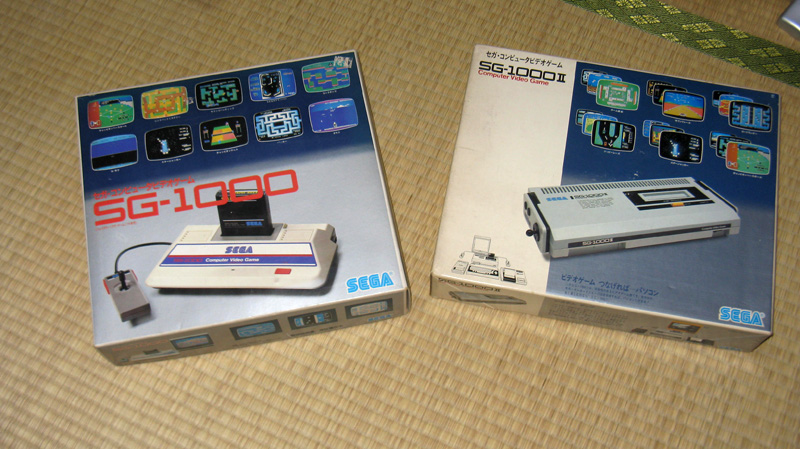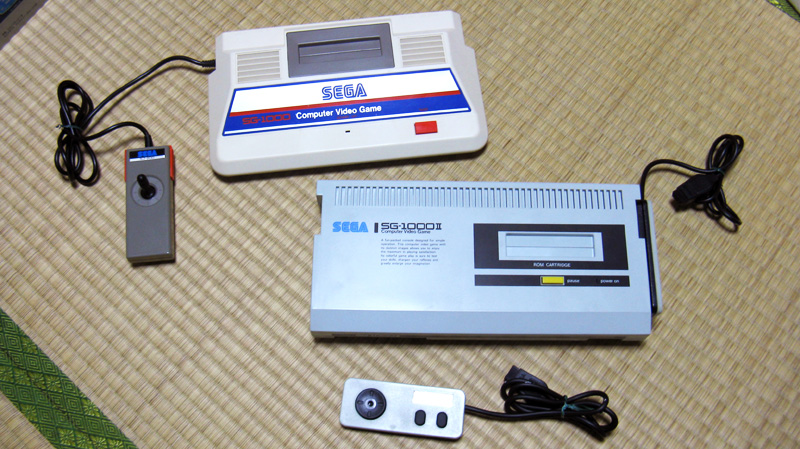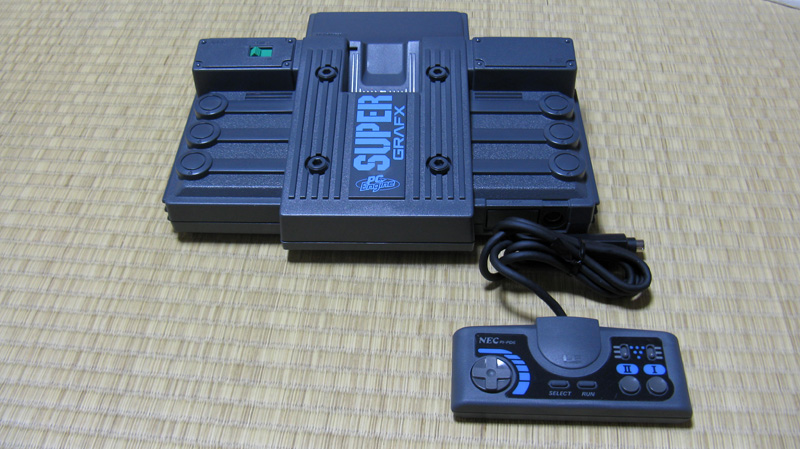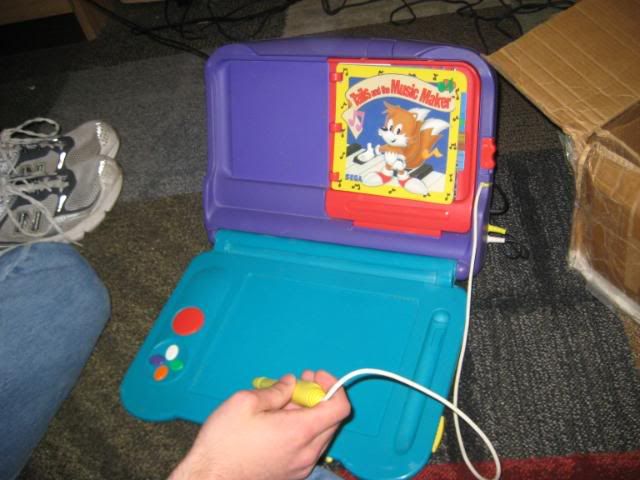It wasn’t until our final week in Tokyo that Tom and I actually visited a maid cafe. I suppose it took that long to feel sufficiently inoculated against Tokyo weirdness. We went to a cafe opposite Super Potato, merely because it was the first one we found. A quick Google gives the name “Popopure Animation Studio and Maid Cafe”, if you want to look it up; there are some videos on YouTube, and apparently the Backstreet Boys shot a music video there, which is clearly exciting. On another trip I had seen a maid standing on the cafe’s balcony with a megaphone, striking poses, miming to J-pop and looking, to be honest, a bit disappointed with the direction her life had taken. Today she was absent.
We hung around the entrance, looking at the prices and wondering if we were about to do something that would scar our consciences for the rest of our lives, until a maid appeared and guided us wordlessly into a cramped lift papered with homogenous anime maids. (This is a thing about Akihabara, by the way; every surface is so coated with kawaii shit it creates a constant dissonance with the reality next to it, which is perpetually underwhelming by comparison.)
We went up a couple of floors, the lift doors opened, and there we were. It was immediately underwhelming; surprisingly small, the place didn’t really resemble a cafe so much as an ugly reception area, or some kind of clinic. There was cheap furniture (with cushions like packing foam), faux-brickwork wallpaper, and tinny classical music over the PA. The few windows had curtains drawn over them. Romantic views of European countryside were painted on the walls.
I understand the maids typically greet you with something to the effect of “welcome home, master”, but if they did, the Japanese was lost on us. The maid who took us disappeared to ensnare more wavering tourists. Another appeared immediately to seat us. I have to say I took a shine to her immediately. There was something sympathetic about her, something almost sheepish, like you could see she was a normal person under the stupid frock. Unless that’s all part of the act. She spoke decent English, but her accent didn’t sound Japanese. Maybe she was sold into maid slavery from Korea.
I ordered a latte. Tom ordered a coffee and some cheesecake. The prices were high, but we’d feared worse. Our table offered a view of the kitchen, where a not particularly kawaii middle-age man in jeans and an apron prepared the food. I say “prepared”; all the evidence suggested his job mainly involved adding hot water to instant coffee and taking supermarket cheesecakes out of the fridge.
When our food arrived, our maid— I wish I could remember her name— performed the ritual that is apparently ubiquitous in such establishments, which is to form one’s hands into a heart shape and squeak “moe, moe, kyun”! (“Moe” refers to some abstract Japanese concept of super-cuteness, but I still don’t know what the “kyun” bit is.) The whole process supposedly imbues your order with magic and love and happiness, transforming it from instant crap to transcendental kawaii gastro-sensation. You have to join in the chant. Possibly if you don’t they start crying or something.
Our food sufficiently blessed, she left us to eat unsupervised. I felt a little short-changed. My research had led me to expect hyperactive doll-women spoon-feeding customers, playing rock-paper-scissors, singing and dancing and giving everyone kawaii aneurisms. (That’s mid-tier stuff. I kept one flyer that seems to offer something to do with feet.) By comparison, our experience was tame, which was admittedly a relief, but sort of a disappointing relief. I noticed there was audio equipment and microphones set up under a large monitor, so I assume things got a bit more intensive at busier times. Or maybe we just weren’t seizing the opportunity: at another table, Tokyo’s loudest, drunkest asshole (+ guest) was cackling and perving and having the time of his life with his maid. I assume he paid for some extra service.
Eventually our hostess reappeared to ask if we wanted anything else. For a few hundred yen you can get a photo taken with your maid (cameras are otherwise forbidden). She asked us which pose we’d like. We asked what the options were. She demonstrated several, each more kawaii than the last. I asked her favourite. This seemed to panic her. I changed tact and asked which the most popular was. She said it was the heart-shape hand thing mentioned before. We opted for that one. Another maid produced an elderly-looking Polaroid camera, Tom and I posed together with our maid, and photo was taken. We were seated again while the Polaroid was first developed, then customised, by our maid. She worked for some time with coloured pens and stamps. After ten or fifteen minutes, she presented us with the final product. It was obvious she’d worked hard: the three of us were enveloped in stars, hearts, and other kawaii miscellany. She’d drawn cat ears on herself. I don’t have the photo right now— Tom kept the Polaroid— but I’ve asked him to scan it so the internet can treasure it just as we do.
Before we left, I asked the maid if she liked working at the cafe. She hesitated for a long time before finally answering: “I like anime, so it’s okay.” She asked where we were staying. We told her Harajuku. She said: “Ah! I buy my dress from there.”
Obviously the maid cafe was overpriced and tacky. Certainly if you go there looking for the things people look for in cafe you will leave infuriated and hungry, but you don’t go for the coffee and cheesecake, you go for the “moe, moe, kyun!” But even that was strangely subdued. Pathetic, even. The production values aren’t really there. But I think it was worth the trip, if only to demystify the spectre of the maids in our minds. It wasn’t as embarrassing as I had expected, though if you get sucked into a song-and-dance routine your experience may differ. Perhaps it’s better that way.
What I can’t resolve about maid cafes is the politics of it all. I reckon Tokyo, Akihabara particularly, is a tough place to be a feminist. Before I went to a maid cafe I assumed it was a sex thing, albeit not an explicit one (unless you go to the foot place, I guess). In practice, the experience was weirdly sexless. It was clinical and patronising and sort of dull. But there’s clearly an ideal being sold here— an ideal of femininity as docile, childish and fluffy. That’s not really cool, or sexy. And the coffee sucks, too.

(not my photo)
There are such things as butler cafes. These are the equivalent of maid cafes in that costumed young men serve customers hand and foot, but with a curious twist: all the butlers are western. Although they’re called butlers, the experience sounds to me more like a prom fantasy derived from Hollywood. The butlers are too young and fluffy-haired to resemble Jenkins and Alfred.
Tom actually got a job offer at a butler cafe. He came back saying it was “without exaggeration the weirdest experience of my life”. According to Tom, the place was run without a shred of irony by a menacing middle-aged woman and a strange man he guessed was her son. There were rules. The female clientele are referred to as “princesses” both in the cafe and behind the scenes. If a princess asks a butler where he lives, he is to tell them he lives in “the butler castle”. (The location of the butler castle is not disclosed.) If a butler is recognised on the street, he must explain that he is merely the butler’s identical twin. The pay sucked, the Japanese don’t tip, and you were expected to buy your own suit. He didn’t take the job.
In the process of researching this piece, I discovered a
Times article that claims maid cafes were better before they went mainstream. The article despairs of “new style maid cafes” or “McMaids”, and singles out Popopure as an example: “touted by street hawkers brandishing glossy pamphlets and shouting “welcome” in eight languages.” I wasn’t aware any other variety of maid cafe existed, or that authenticity was really a quantifiable value in the maid cafe industry, but apparently I went to a tourist trap. Anyway, the Times alleges the next hot thing in the underground maid cafe scene is the “clumsy cafe”, where “the staff are incompetent, distracted and rude, spill things, ignore customers and their aprons are a bit shabby.” That sounds even hotter: an ideal of women as moronic klutzes. Reminds me of carstuckgirls.com. I’ll check it out next time I’m in town.
Here’s one final Akihabara tale of otaku depravity: on the same trip, we went to Mandarake, an enormous multi-storey manga shop that employs several women to walk around waving at customers, wearing huge wigs and not much else. They were, I am ashamed to say, distracting. I guess I wasn’t the only customer to find them distracting, because while I was there I saw a hand appear from behind a shelf of vintage manga and fondle an exposed buttock. The woman didn’t react. I wasn’t sure how to react either, so I decided not to react too. In this way, sexual assault will surely be defeated.







 (not my photo)
(not my photo)